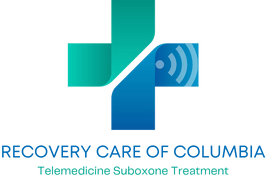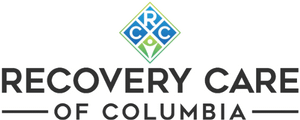Columbia Suboxone Clinic Blog
Opioid Addiction Crisis: A Manufactured Epidemic and the Path Forward
The opioid addiction crisis in the United States is a manmade public health emergency that has claimed hundreds of thousands of lives and upended entire communities. Originally sparked by aggressive pharmaceutical marketing and overprescribing practices, this epidemic has evolved into a nationwide tragedy that continues to impact individuals from all walks of life—including thousands right here in Tennessee.
What started as a “miracle cure” for pain has transformed into a deadly cycle of dependence, overdose, and loss. Understanding how we got here—and how to reverse course—is key to healing individuals, families, and communities ravaged by opioids.
💊 The Manufactured Roots of the Opioid Epidemic
In the late 1990s and early 2000s, pharmaceutical companies reassured doctors that patients would not become addicted to opioid pain relievers. Drugs like oxycodone, hydrocodone, and fentanyl were aggressively marketed as safe, effective, and non-addictive solutions to pain—especially chronic pain.
Physicians, acting in good faith, began prescribing these medications widely. The result was a flood of opioids into American homes, where they were often stored insecurely, shared, or abused. By the time the medical community recognized how dangerously addictive these drugs were, it was too late. Millions had already developed dependence.
📈 The Numbers Behind the Crisis
According to the National Institute on Drug Abuse, over 70,000 Americans died from drug overdoses in 2019, and opioids were responsible for the vast majority of these deaths. That number has only risen in recent years—exacerbated by the spread of illicit fentanyl and the isolation brought on by the COVID-19 pandemic.
In Tennessee alone, overdose deaths have spiked dramatically, affecting individuals across every demographic—from high school athletes with sports injuries to retirees managing chronic back pain.
⚠️ Addiction Doesn’t Discriminate
One of the most devastating realities of the opioid crisis is its indiscriminate nature. Addiction affects people of every age, background, race, and income level. It’s not limited to “street drug” users. Many individuals struggling with opioid use disorder began with a legitimate prescription and never expected to become addicted.
This widespread reach is why it’s no longer useful—or humane—to view opioid addiction through a lens of personal failure or criminal behavior. Instead, we must see it as a chronic medical condition that requires professional treatment and long-term care.
🚫 The Stigma That Holds People Back
Despite greater awareness, the stigma around addiction persists. Many people suffer in silence, afraid to ask for help because they fear being judged, fired, or alienated from family and friends. This stigma is especially harmful in rural areas, where community support is crucial but privacy can be limited.
Stigma keeps people from reaching out for the lifesaving treatment that’s available. Reframing addiction as a treatable disease—just like diabetes or asthma—is one of the most important steps toward solving the opioid crisis.
🛠️ Solutions in Motion: Addressing the Crisis at the Root
Thankfully, there is progress. In recent years, healthcare providers, policymakers, and community leaders have come together to implement systemic changes aimed at reducing opioid misuse and improving recovery outcomes:
1. Prescription Drug Monitoring Programs (PDMPs)
These state-run databases track controlled substance prescriptions, helping providers identify patterns of misuse and prevent doctor shopping.
2. Alternative Pain Management
From physical therapy to acupuncture to mindfulness techniques, more providers are offering non-opioid alternatives to manage chronic pain effectively and safely.
3. Public Education
Campaigns across Tennessee have helped educate the public on the risks of opioid misuse, the danger of fentanyl-laced pills, and how to access treatment.
💊 Medication-Assisted Treatment (MAT): A Modern Solution That Works
One of the most effective tools in fighting the opioid addiction crisis is Medication-Assisted Treatment (MAT). MAT combines FDA-approved medications like Suboxone (buprenorphine + naloxone) with counseling and behavioral therapies to provide a comprehensive treatment plan.
Benefits of MAT:
-
Reduces cravings and withdrawal symptoms
-
Helps prevent relapse
-
Allows patients to regain normalcy in their lives
-
Supports mental health recovery
-
Covered by TennCare and many insurance plans in Tennessee
🏥 Recovery Care of Columbia: Leading Tennessee Out of the Crisis
Recovery Care of Columbia is a licensed and Joint Commission-accredited addiction treatment clinic serving patients throughout Tennessee. Our telemedicine Suboxone program allows patients to begin treatment from the comfort and privacy of their home—no travel required.
We provide a step-by-step plan designed to eliminate withdrawal symptoms and reduce opioid cravings within days. No matter your opioid of choice—fentanyl, oxycodone, heroin, hydromorphone, Opana, Percocet—we’ll help you safely transition to Suboxone and start living life on your terms again.
👉 Start Suboxone Treatment with TennCare Insurance
👉 Start with Commercial Insurance
👉 Start Self-Pay Treatment
🤝 The Role of Group Recovery in Healing
Opioids create isolation, and isolation fuels addiction. One of the most powerful antidotes to this is community. Group recovery programs like Narcotics Anonymous (NA) and Alcoholics Anonymous (AA) provide a sense of belonging and accountability that can make a massive difference.
Many of our patients combine telemedicine MAT with local in-person or virtual group meetings, allowing them to benefit from both professional care and peer support.
“Group recovery has been the cornerstone of my sobriety. Before I got clean, a friend offered to take me to an NA meeting. I agreed to go to three with him, just to be polite. Honestly, I hated the first two—but something incredible happened at the third. It was a speaker meeting, where someone shared their story. As he spoke, I couldn’t believe what I was hearing. His story mirrored mine so closely it felt like he was telling my life. In that moment, everything changed. I knew recovery was possible—and more than that, I knew I wanted it. I wanted what he had more than I’ve ever wanted anything.
The next day, I found an outpatient Suboxone clinic and started treatment. I kept going to meetings, got a sponsor, and started rebuilding my life from the ground up. I went to a meeting every single day for over four years—and I still attend regularly. Group recovery gave me connection, accountability, and support I never knew I needed.
In my experience, recovery isn’t complete without some form of group recovery. It changed my life—and it still does.”
— Drew Bourke – Co-Owner and President of Recovery CareLooking for a meeting? Find a group recovery meeting near you
🧠 Addiction Is a Disease, Not a Decision
People don’t choose addiction. They fall into it through a mix of circumstances—injury, trauma, mental health struggles, or simple bad luck. But with the right treatment and support, they can choose recovery.
“People who get addicted aren’t bad people; they’re sick people who are trying to get well.”
The opioid addiction crisis may have been manufactured, but recovery is real—and it’s happening every day in Tennessee.



